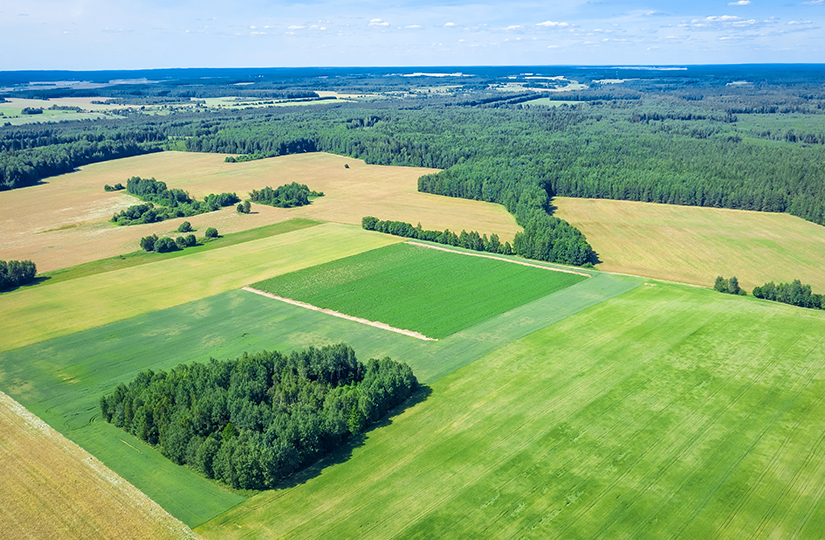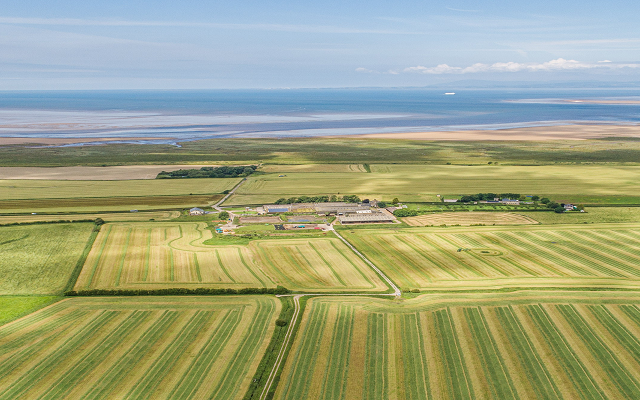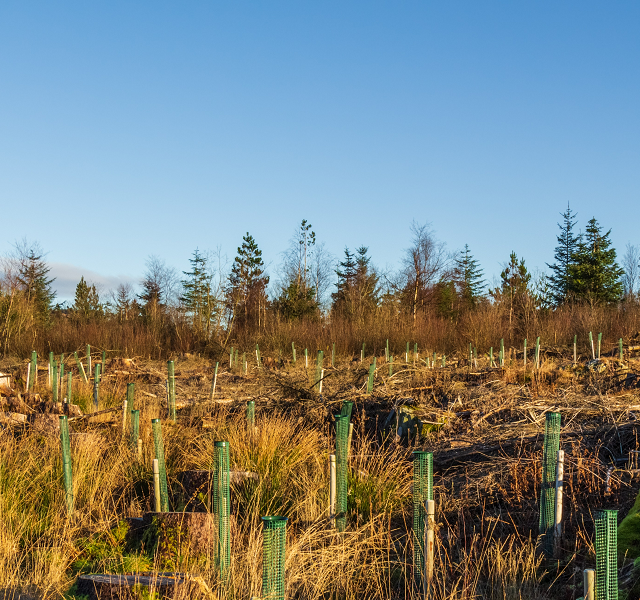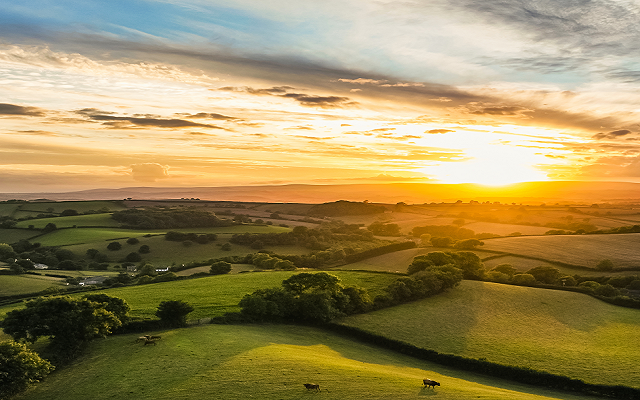10 top tips when looking to buy land or a farm
The opportunity to buy land or a farm is an exciting one, but you are likely to need professional help to find the right property and secure it at the right price.
The market for land and farms is a complex one, where local knowledge and specialist experience of where issues can arise during the process can be hugely important.
Strutt & Parker highlights some of the key considerations for buyers of farmland:
1. Define your objectives
It’s important to be clear about your objectives before you start looking for a farm.
Sit down with your family and other stakeholders to agree what your priorities should be, including search areas. Failure to do this can lead to problems if it later emerges that different family members have different ideas about what they are looking for.
Involving a third-party in these discussions can be helpful, as they can act as an impartial ear and may contribute ideas that change or refine your requirements.
2. Maximise your search options
When it comes to buying land and farms, what is advertised online is not the whole story.
Private sales which are not advertised publicly may account for 20-25% of the market, so talking to agents is also vital.
3. Think about time of year
Spring and early summer is the time of year when most farms are traditionally launched on the market, as this is when most farms look at their best.
However, over the past few years the market has become a little less seasonal and we have seen more transactions taking place later into the second half of the year.
4. Be patient
The number of farms which come to the market each year is relatively small, so searching can take time. It is not unusual for a potential buyer to be in the market for two or three years, before they make a purchase. The minimum time it takes to find and buy a farm is probably six months.
Buyers with rollover money have three years to reinvest their money. If they are unable to secure a farm within this time, HMRC may grant an extension in exceptional circumstances.
5. Consider appointing a buying agent
The majority of farm agents don’t just sell land – when they are not acting for the vendor, they can also act as a buying agent if required. This means they are retained to represent the buyer, smoothing the whole process for them. A buying agent might get involved in searching for the right farm; advising on technical aspects of a farm’s potential, including drawing up budgets; valuing the property; and leading sale negotiations. Once an offer has been accepted, they will work with the other professionals involved with a sale, such as lawyers and accountants, to carry out due diligence checks and get the deal finalised.
The service tends to be very bespoke – some buyers want lots of help, while others only want input at certain stages. Agents typically charge a small percentage of the purchase price or have a fixed fee arrangement.
6. Ask lots of questions
Most buyers will want at least two viewings of a property before they consider making an offer.
Don’t be afraid to ask awkward questions as you go around the farm or, if you aren’t comfortable doing this, get your agent to do it.
This can uncover, for example, if the heap of rubble at the back of the yard includes asbestos that will need to be disposed of, or if ditches full of water point to drainage problems.
Take photographs of anything you are worried about so you can investigate it further before making an offer.
Visit at different times of the day if you are worried about traffic and noise levels. Perhaps even visit the area after dark to check for light pollution. Test your routes to shops, schools and other facilities if this is going to be important to you and your family.
Buyers can make the most of a first viewing by carrying out some preliminary research online before they set off. The interactive Magic map is a good starting point, helping to identify land designations and rights of way.
7. Take specialist legal advice
There is a benefit for everyone in instructing a legal team that specialises in farm transactions.
Lawyers who specialise in other property sectors can often run into difficulties when it comes to dealing with farm transactions. This slows down the process which can frustrate both vendors and buyers.
8. Take advice on price of land
With the price of land highly polarised – arable values in England ranged from a high of £17,500/acre to a low of £5,200/acre during the first half of 2020 – doing your research is crucial. Values can vary widely within counties and even within parishes, so you’ll need detailed knowledge of the local market before making an offer. (Read the Summer 2020 English Farmland Market Review for more details)
There’s a huge range of considerations which need to be factored in, with examples including what the soil is capable of producing, whether there are any planning restrictions, whether the land in an AONB or SSSI, if it floods or if the farm has been zoned for development. Agents will also be able to help provide local knowledge which goes beyond advising on the price of land. For example, who are the neighbours and what are their intentions? Might there be a potential opportunity, as they are also reaching the stage when they are considering selling or might they be competition as possible buyers themselves?
9. Prepare for financial and legal checks
Buyers will be asked relatively early on in the process to prove they have the financial resources to support a purchase. Expect to be asked to provide a financial reference from either your bank manager or accountant.
Anti-Money Laundering and Counter Terrorist Financing legislation was strengthened in 2017, which requires much more stringent checks on buyers than in the past. In addition to supplying financial references, buyers need to show proof of ID and proof of residence. If buying through a company or trust structure, both the buying agent and selling agent will need to know who all the stakeholders and beneficiaries are.
10. Remember stamp duty
Stamp duty land tax (SDLT) varies according to the purchase price and property, but the majority of farms usually fall under the ‘mixed use’ classification with a top rate SDLT rate of 5% (compared with 12% for residential property).






